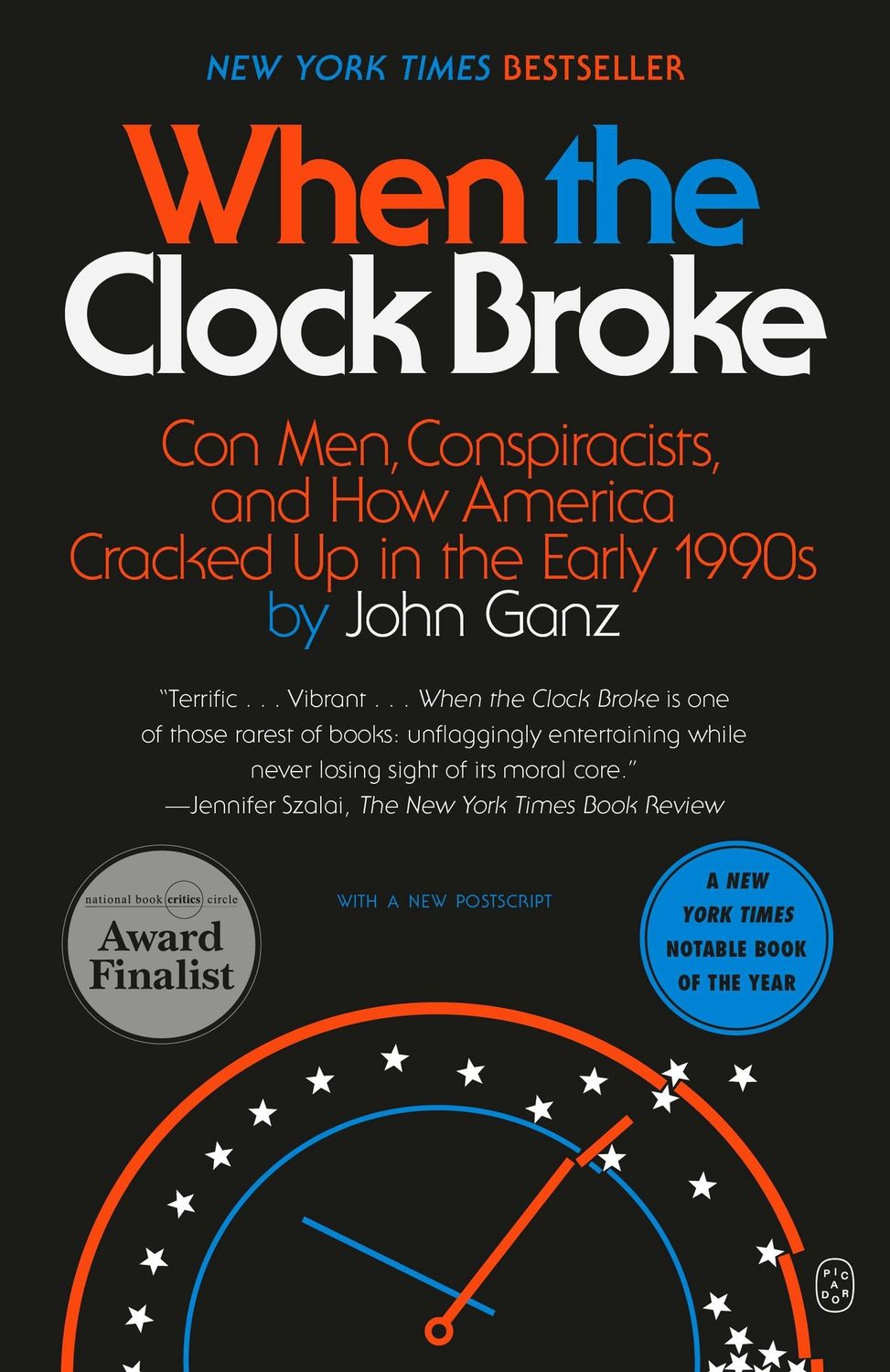When the Clock Broke by John Ganz
A revelatory look back at the convulsions at the end of the Reagan era - and their dark legacy today.
A high official in the Department of Defense is accused of running a drug trafficking operation, and the rumors reverberate. Mayoral candidate Rudy Giuliani incites a riot among police officers in Lower Manhattan. The ex-Klansman and neo-Nazi David Duke runs for governor of Louisiana and wins the white vote. "If the ideals that I stand for are addressed, then I will only be a footnote in history," he prophesies. "But if the deterioration of the white middle class continues, then I willbe president."
The early 1990s promised Americans confidence and primacy. It didn't turn out that way. As the economy contracted and anxieties about crime, immigration, and foreign competition rose, the national mood darkened. An influential group of conservative thinkers rejected "globalism" and called for a "populist-based presidency" that would save the American way of life. They sought to "break the clock" and "repeal the twentieth century."
In When the Clock Broke, John Ganz dissects a country in extremis. As the Cold War consensus ended, Americans exhumed old demons and created some new ones. A culture war was declared on liberal elites, free trade was equated with the "giant sucking sound" of jobs lost to Mexico, and rowdy talk radio hosts forged bonds with audiences undergoing an "epidemic of loneliness." Increasingly, the Republican Party was the haven of the alienated and angry. When Bill Clinton won the presidency, it seemed the centerhad held - temporarily.
Ranging from Ruby Ridge to the Chinese restaurant in Virginia where "paleoconservatives" devised a new politics for "Middle American Radicals," Ganz offers a rollicking exposé of the end of the post-World War II order - and the advent of a new, more berserk America.
